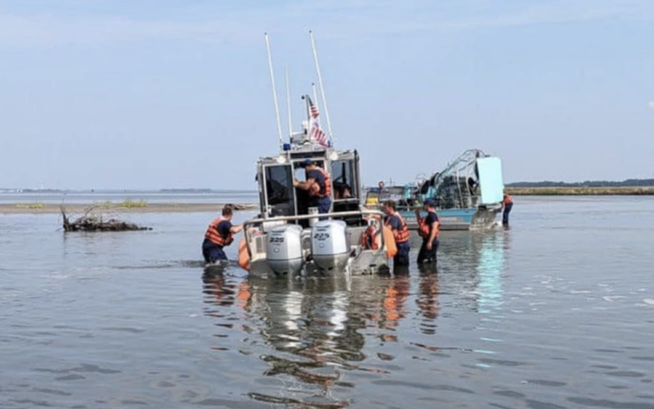The Coast Guard says that improvements it has made to streamline the ability of those with military experience to land jobs in the maritime industry are starting to pay off.
The service says it continues to work to make the process of obtaining merchant mariner credentials (MMC), which are required to work in the industry, easier for those who have similar training and experience in the U.S. military and want to transition to maritime jobs.
“For over 20 years the Coast Guard has been actively working with FACAs [federal advisory committees] to identify pathways for utilizing military education, training and assessments to qualify for standards of training, certification and watchkeeping (STCW) and national MMC endorsements,” Vice Admiral Paul F. Thomas, deputy commandant for mission support, told a hearing before the House Coast Guard and Maritime Transportation Subcommittee.
“The Coast Guard has approved 110 courses which provide military applicants credit for MMC requirements through the training they have received while on active duty,” he said.
In addition, a policy allowing a waiver of merchant mariner credential fees for military personnel that began in May 2022 has waived 4,302 fees for 1,580 applicants from military services.
And since the Coast Guard expanded the window for sea service eligibility in 2020 by allowing military sea time within the last seven years to qualify to apply for an MMC, the number of MMC applicants with military backgrounds has doubled since 2016, the admiral said.
In many cases, military maritime experience may be counted towards the sea service required to become a mariner and receive the MMC. It is strongly advised that military members wanting to transition to the maritime industry start preparing a record of all training and jobs done in the service, even before leaving the military. This documentation is necessary for the MMC application process.
The “military-to-mariner” program, launched in 2019, is a top priority of the U.S. Maritime Administration, maritime training schools and the maritime industry. Maritime companies see it as a helpful tool to identity new talent during a time of sustained labor shortages and get job seekers more quickly eligible for employment.
Maritime employers, including many in the inland waterways sector, like hiring veterans because they work well on teams, understand a chain of command, can pass drug tests and physicals, are accustomed to being away from home, are easy to train, and are usually well-prepared to start a job right away.




